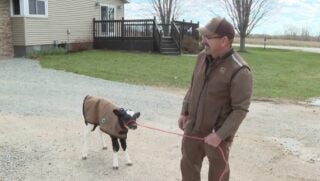Last week I attended a meeting in downtown Chicago. It’s about two hours from our office in South Bend, Indiana. My colleague readily agreed to drive (which was awesome, because I hate that drive). So I was free to enjoy the ride. The sun was shining, traffic was light, and there was that familiar awe at seeing the skyscrapers start to rise ahead of us.
We managed to find our destination and a parking spot nearby. We headed to a nearby coffee shop to kill some time. It’s a super cute place with trendy decor and fancy drinks. They didn’t serve milk products though, only substitutes. But my coffee was tasty, and we enjoyed the atmosphere.
We eventually wandered to the meeting, which was located on the 25th floor of a high rise overlooking the courthouse. Just like the coffee shop, the space was ultra modern and sleek. The meeting space was incredible with floor-to-ceiling windows highlighting the spectacular views.
But my interest in the city faded quickly as we left the meeting. We paid over $50 for parking, we hit rush hour traffic, and I was getting a migraine. I was never so happy to hit the Indiana toll road and leave behind the towering buildings for large fields and an open sky.
And as the Windy City faded behind us, I distinctly remember thinking how different life was in rural communities and smaller cities. Sometimes it seems like we have nothing in common with our city cousins. We grow crops; they grow buildings. We like to spread out; they live on top of each other. They’re constantly moving and bustling; we like to take things a little slower.
But the last week has certainly brought things into perspective: We’re all in this together.
As COVID-19 sweeps upon our country, we realize that no one is immune to it. The pandemic is impacting everyone — from small towns to the biggest cities, from young students to the elderly, from minimum-wage workers to white-collar execs. We’ve been challenged as a society to collectively act to flatten the curve. We’re all tasked with social distancing and obsessive hand washing. It doesn’t matter where we live, many people have rushed to the stores to stock up on toilet paper and hand sanitizer.

Whether we like it or not, cowboys and city slickers are more connected than we’ve ever been before. And it’s not just because farmers grow crops to feed, clothe, and shelter the big cities. In rural America, we enjoy the fruits of the city, too. We benefit from the technology developed in those downtown companies. The major universities drive the science we rely on. And culture on the coasts is our mainstream.
Social media has helped create a culture that we can all plug into all the time. How many memes and comics have you seen about our current situation? While we’re busy social distancing, we’re still very much connected, just in a different way.
So while I’m worried that our current circumstances are going to have long-lasting effects, I’m also hopeful because we have a shared human experience. Who knows how long the pandemic will last. Who knows how the economy will turn once this is all over. Who knows how everyday life will have to change.
But for once, I kinda feel like we’re all in this together.
Amanda Zaluckyj blogs under the name The Farmer’s Daughter USA. Her goal is to promote farmers and tackle the misinformation swirling around the U.S. food industry.



